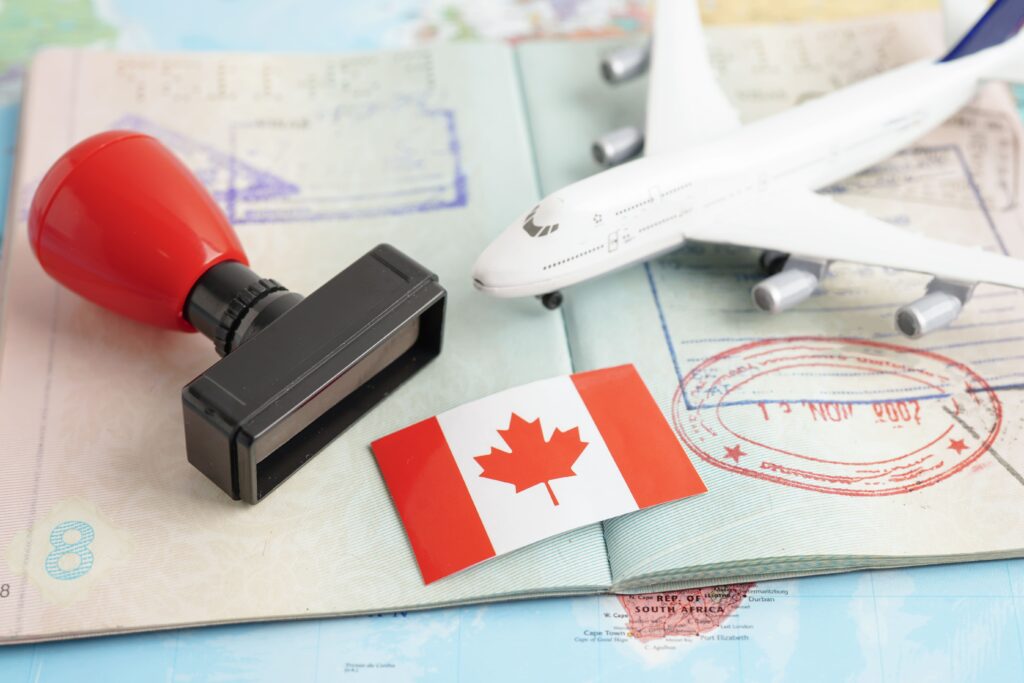As a skilled worker, if you want to settle in Canada, filing an application for permanent residence in the Skilled Worker category is one of the ideal options. Canada accepts thousands of skilled workers annually to bridge gaps in its labor market.
However, getting approved is not that simple. The application process is complex and lengthy, and requires in-depth knowledge of the criteria, procedure, and documentation.
In this blog, we’re going to deconstruct what you need to know about the Skilled Worker application process and how to maximise your chances of success.
What is the Skilled Worker Category?
The Skilled Worker category is suited for those who possess the skills and experience Canada requires. The avenue of immigration helps foreign workers apply for permanent residence based on their qualifications, work experience, and personal credentials.
Skilled workers, unlike other categories, are evaluated under several factors such as education, language skills, work experience, and adaptability.
The most important requirement of this program is to pass with a minimum of 67 points out of a maximum of 100. Points are received on the basis of certain factors, every one of which indicates the degree to which you are likely to thrive economically in Canada.
Key Factors for a Skilled Worker Application
In order to apply for a Canadian work permit in the Skilled Worker category, you must fulfill a number of eligibility criteria. The point system that is utilized in evaluating applicants considers the following parameters:
Education (Max 25 points)
Your level of education is a significant component of the points calculation. The more educated you are, the higher your points are. A higher qualification, for instance, a degree from a university, normally scores more points than a diploma or certificate.
Official Languages (Max 24 points)
Fluency in either French or English is essential. Test scores in language proficiency tests such as IELTS for English or TEF for French can be used to earn points. Good language ability means that you are able to settle and thrive in the Canadian labor force.
Work Experience (Max 21 points)
You must have one year of full-time work experience (37.5 hours per week) in a position that is listed under Skill Type 0, A, or B of the National Occupational Classification (NOC).
These are management positions, professional occupations, and skilled trades. Experience gained in lower-skilled occupations will not be counted towards the points for eligibility.
Arranged Employment (Max 10 points)
If you have a previous valid job offer from a Canadian employer, you can score more points. This enhances your chances of being approved because it indicates there is a definite job for you in Canada after you are approved.
Age (Max 10 points)
Your age is also significant. Candidates aged 18-35 usually gain the most points. The older you become, the fewer points can be gained for age, which is worth remembering if you’re hoping to apply later in life.
Adaptability (Max 10 points)
Adaptability is about how well you can acclimatize to life in Canada. Qualities such as having past work or study experience in Canada, having an immediate family member in Canada, or having a spouse or common-law partner who can help fund the family can earn you extra points.
Meeting the Minimum Requirements
In order to be eligible for permanent residence as a Skilled Worker, you must score a minimum of 67 points on these grounds. If your overall score is less than 67 points, your application might not be approved, although there is still hope of approval if an officer of immigration is convinced that you will be able to economically settle in Canada.
What If You Don’t Score Enough Points?
If your marks are below 67 points, then there is always hope you might still qualify under particular circumstances. Immigration officers are allowed to approve cases even in the event of lower scores than what is required. Still, this is not common, and this hinges on the applicant’s capacity to demonstrate that he or she can sustain himself economically in Canada.
If you initially do not meet the requirements, it can be worth considering what can be done to enhance your application, for example, by enhancing language test scores or acquiring extra work experience.
High-Demand Jobs and Course Changes
In recent years, Canada has made some changes to its Skilled Worker program. Some applicants will only be considered if they have experience in one of 29 high-demand occupations. These occupations typically include areas like IT, engineering, and healthcare. If your work experience is in one of these fields, your chances of approval could be higher.
Also, if you already have experience working in Canada as a temporary foreign worker or an international student, you might be able to apply even if you do not qualify in all the normal ways.
How to Make Your Application as Strong as Possible?
Obtain a professional assessment: The points system can be complicated, and it is easy to miss key factors. If possible, get a professional assessment so that your application is as good as it can be.
Improve your language skills: If you lack confidence in your language skills, take a language course or retake the language proficiency test to enhance your score.
Extend your work experience: If you have not completed a year of work experience within an eligible occupation, attempt to acquire this experience prior to applying.
Stay current: Be aware of any revisions to the program, including new high-demand jobs or changing requirements for eligibility.
Final Words
The Skilled Worker application is a tried and tested route to Canadian permanent residence, but it does need careful planning and preparation. Knowing the points system and satisfying the requirements for eligibility can greatly improve your prospects of being approved.
Whether you are enhancing your language skills, accumulating additional work experience, or acquiring a job offer, every step you take you are closer to fulfilling your dream to live and work in Canada.
If you’re not sure of the process or require help, it’s always best to speak with an immigration expert who can assist you with the application and ensure the highest likelihood of success.













